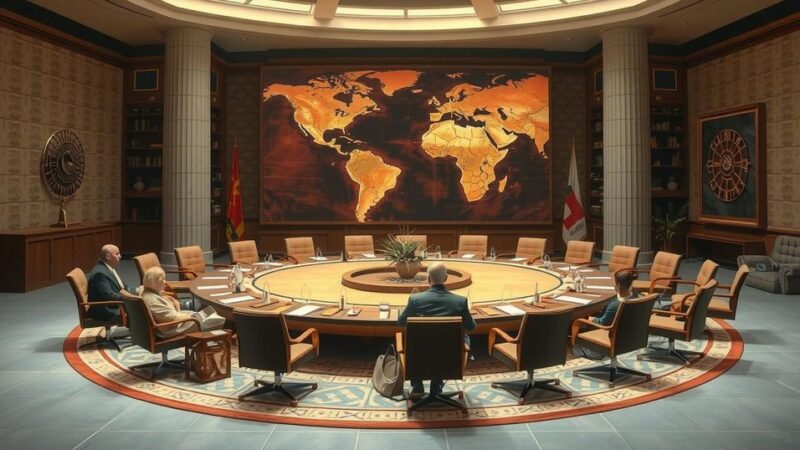The article reviews various commentaries on international relations, specifically the Ukraine conflict as a focal point of Russia’s aggression toward the West. It criticizes Egypt’s passive role in mediating the Israeli-Palestinian crisis, addresses controversies surrounding President Trump’s governance, highlights achievements regarding border control, and urges a partnership between technology sectors and familial structures for future resilience.
In their analysis, Mark Toth and Jonathan Sweet emphasize that Ukraine represents the forefront of the conflict initiated by Russian President Vladimir Putin against Western nations. They caution that a Russian victory would significantly weaken Europe’s defenses. The urgency for Europe to bolster support for Ukraine is paramount, particularly with fluctuating U.S. backing under former President Trump. The authors stress the shared responsibility to protect the continent and the implications for Americans if Ukraine succumbs to Russian pressure.
Seth Mandel critiques Egypt’s role as an obstacle in resolving the Palestinian issue amid rising tensions in the Israeli-Palestinian conflict. He argues that if conflict between Israel and Hamas reignites, Egypt must facilitate Palestinian resettlement to help mitigate the situation, but instead, it resorts to passive complaints regarding Israel’s actions. Mandel characterizes Egypt’s proposed strategies as ineffective and a capitulation to Hamas’s influence, elucidating their lack of proactive measures in the crisis.
Ruy Teixeira from The Liberal Patriot expresses concern regarding President Trump’s initiatives to scale back government functions, particularly through the Department of Government Efficiency. Teixeira notes that unnecessary alterations to vital entitlements may alienate voters, reflecting plummeting support for innovations proposed by Trump and the administration’s excessive zeal. He asserts that Trump’s focus should align with public demands rather than base excitement, advocating for a balanced approach toward immigration while ensuring the longevity of essential programs.
Mark Krikorian recalls Trump’s success in resolving the border crisis, which was previously deemed unachievable by several political observers. He argues that rapid, decisive changes by the Trump administration effectively reduced illegal immigration by 90% within weeks. The success stemmed from policy reversals that frightened potential migrants into reconsidering their plans. Krikorian concludes that addressing the migration crisis turned out to be feasible, contingent upon a commitment to decisive enforcement.
Katherine Boyle highlights the evolving dynamics between technology and familial structures in her commentary, advocating for greater recognition of the family as a decentralized authority in opposition to state powers. She posits that the resilience and continuity of families provide a critical support structure for technological advancement. Boyle argues that collaboration between tech sectors and families will drive future innovations, emphasizing that families’ inherent longevity positions them uniquely against transient corporate entities.
The Post Editorial Board compiled various perspectives showing the complexity and interplay of international crises, national governance, social structures, and technological advancements. Each commentary, whether focusing on foreign policy, domestic issues, or cultural observations, articulates distinct challenges faced by societies today.
The commentary explores significant issues surrounding the Ukraine conflict, Egyptian geopolitical dynamics, Trump’s policy challenges, border security achievements, and the relationship between technology and family structures. Each perspective stresses the importance of strategic actions and informed leadership to navigate these complex terrains. Ultimately, these discussions are reflective of broader societal challenges that require collaborative solutions across various facets of governance and social institutions.
Original Source: nypost.com






